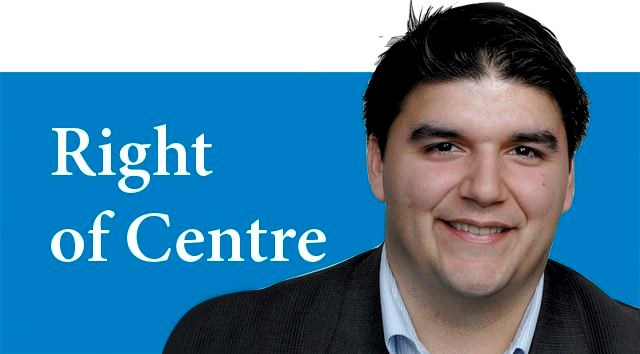As fires rage, political and physical, we'd do well to recall the second half of our Constitution's credo - "the Rule of Law." It is what sets us apart from so many places in the world where chaos, violence, and corrupt administration is the norm. How we deal with payouts of millions, parliamentary maneuvering, and pyromantic mother nature is all based on a fundamental belief that our laws are legitimate and unbiased. Without this act of faith, our peace and order would evaporate.
To be clear, I'm not saying there are no alternatives to the rule of law, nor that we do not ever use other methods to ensure "Peace, Order, and Good Government," in our Dominion.
Furthermore, it is important to realize that this concept is not some distant idea for political science wonks to wax philosophical about. Ultimately, the rule of law might best be defined as the legal consequences that result from certain activities and events that cannot be avoided by anyone nor anything.
Yes, even the queen is subject to the laws of Parliament, a point that has been clarified again and again going all the way back to Magna Carta.
But I posited earlier that the rule of law is something that can be given a concrete explanation, with special reference to Omar Khadr, Victoria, and B.C. wildfires; these situations are diverse to say the least, but what has occurred in and around all of them still hinges on the fundamental principle that no one person or thing is above the law.
Ironically, the $10.5-million-dollar payout to Khadr is the easiest example to explain by this principle. Obviously, the rule of law encompasses all the legal rights we have as citizens such as habeas corpus, a fair trial, etc.
Regarding Khadr, the argument is simply that these rights were not observed and therefore he is owed damages. Whatever one might think of Khadr or his past actions, he is still a Canadian citizen and thus he has the same rights as any of us. That is the only comment I will make.
In Victoria, the situation becomes slightly more complicated, as the rule of law via democratic elections are in tension with conventions of parliamentary procedure. The short version is that the speaker serves the house, not the executive branch of the government which is often made up of the majority party. Thus, all the talk around trying to change the speaker into a partisan actor, while it could be legislated into effect, would be a great divorce from the historical position as such.
But convention cannot make the same claims that legislation can under the rule of law and so it is likely that either by legislation or by a concerted effort to push new modes into the traditional role of the speaker, the legislature will prevail. What keeps us from marching on Victoria, besides the strategically placed body of water, is the penultimate trust we have in the lawful electoral process itself; we believe these people will abide by the rule of law, whatever their political stripe.
Lastly, the question of a non-sentient force of nature comes into focus regarding the case of wildfires and their relationship to the law. One argument that can be made is that wildfires are enemies of the public good, to be treated as a hostile force by the lawful mechanisms of the state.
But more properly speaking, we trust that the prioritization of fires is not done with bias but with well-researched protocols by professionals who are accredited; the budgets to fight fires are passed in the legislature which is manned by freely-elected individuals of our province; firefighter training is routinely scrutinized for improvement; firefighters have access to all the same resources for health and safety as every other worker; and even the evacuation orders have basis in legal precedent.
Finally, and perhaps the simplest example thus far, is that the deluge of impeding insurance claims will be honored by the force of law that has stipulated to those companies what kinds of claims cannot be denied. This, not to mention the property itself, is all under the rule of law.
Last week, I concluded that liberty was undefinable. But law, as I've demonstrated, is quite another matter. Whereas liberty is a living, uncontainable thing, the rule of law is death by fine print.



